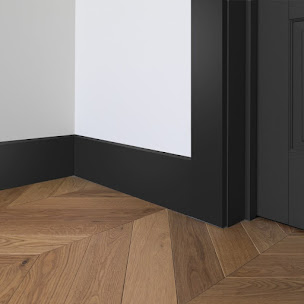Durable Design: Unveiling The Strength of Plastic Grating Systems
Fiberglass plastic Grating is a revolutionary material in the large field of industrial and building materials. It is the material of choice for many applications because of its exceptional characteristics and distinctive makeup. Fiberglass polymer grating has revolutionized the industry with its strength, durability, lightweight design, and safety features.
Fiberglass grating, also known as fiberglass-reinforced plastic grille, fiberglass-molded grating, fiberglass grating, or fiberglass walkway, is a multi-segmented plate material composed of unsaturated polyester resin as the matrix and glass fiber as the reinforcing element. The plastic grille reinforced with glass fiber can serve as a structural element. Materials used in corrosive conditions, such as plank roads, ship decks, platforms, staircases, floors, etc.
Similar to metal grating, plastic grating is produced in a variety of mesh sizes and heights to comply with legal standards and load specifications. Additionally, we have "blind" plastic grating, which is a grid entirely coated in a sheet to make it opaque. The choice between the many varieties of sandblasted and torn will depend on the risk of slipping.
The remarkable strength and longevity of fiberglass polymer grating are among the main causes of its widespread use. Fiberglass grating endures over time, in contrast to conventional materials that corrode and wear out. Because of its durability and lengthy lifespan, it ends up being a cost-effective investment.
strong resistance to corrosion. Since unrefined polyester resin and glass fiber are the primary raw materials of FRP, it has become the primary material of the chlor-alkali industry due to its effective resistance to the corrosive effects of acid, alkali, salt, and other media, as well as the erosion of untreated waste water, corrosive soil, chemical wastewater, and many other chemical liquids.
Pros
- Its superior corrosion resistance against acid, alkali, organic solvents, salt, and numerous other gas and liquid media makes it unmatched in the corrosion resistance area.
- Glass Reinforcement Plastic (GRP) is a type of material that finds great application in a wide range of industries. GRP is incredibly adaptable and may be simply fitted to any site within any business, from resorts to construction to marine docks to educational institutions.
- Glass reinforcing polymer (GRP) Anti Slip Grating is a tried-and-true, perfect substitute for steel, stainless steel, and aluminum gratings. We offer an appealing combination of mechanical and physical features. They are very appropriate for installations in the majority of industrial and commercial settings since they come in an extensive range of structural, chemical, and dimensional variations and can be ordered in the color of your choosing straight from the factory.
- Materials utilized in or for building are frequently costly. In addition to being reasonably priced, GRP requires very little maintenance, which eliminates the need for extra expenses. Furthermore, GRP has a long shelf life, so there's no need to regularly replace it with new purchases.
- Because of its high strength-to-weight ratio, GRP grating can withstand large loads while remaining lightweight. When supporting large machinery in industrial as well as construction settings, this is especially helpful. It greatly benefits from the load-bearing properties of GRP flooring panels, which guarantee the structure may span an appropriate distance without requiring complete support.
Cons
- One of the main drawbacks of GRP is repair. This is due to the fact that the supplies needed to repair GRP frequently need to be carried in a refrigeration vehicle and have a short shelf life. To complete the repairs, specialized equipment is also needed, which can be challenging. Fortunately, however, GRP is so durable that repairs are rarely needed.
- When installing drainage in an industrial setting, plastic is not the best material to use. Furthermore, plastic is not strong enough to withstand being run over by big cars. In a setting where these kinds of obstacles are present, you will need to choose a considerably stronger material. There are particular drainage designs designed for this use only, but they are never composed of plastic.
- The total price of FRP Open Mesh Grating is less than that of regular carbon steel. Even though its initial outlay is greater than that of regular carbon steel, many users might be more worried about the cost.
- Products composed of glass-strengthened plastic are often the better option for the several reasons mentioned above. Furthermore, although GRP may initially be more expensive than other choices, over time, the continuing costs become almost nonexistent. This indicates that not only will your initial investment quickly pay for itself, but that you may also soon start saving more money because of its robustness and duration.
- In general, a metal system for drainage will always be more robust than a plastic one. Over time, plastic will become more fragile and considerably less resilient to changes in heat and surroundings. Consider utilizing a different type of drainage material in place of plastic if you are constructing drainage in an area where it is difficult to remove or replace drainage sections.




Comments
Post a Comment